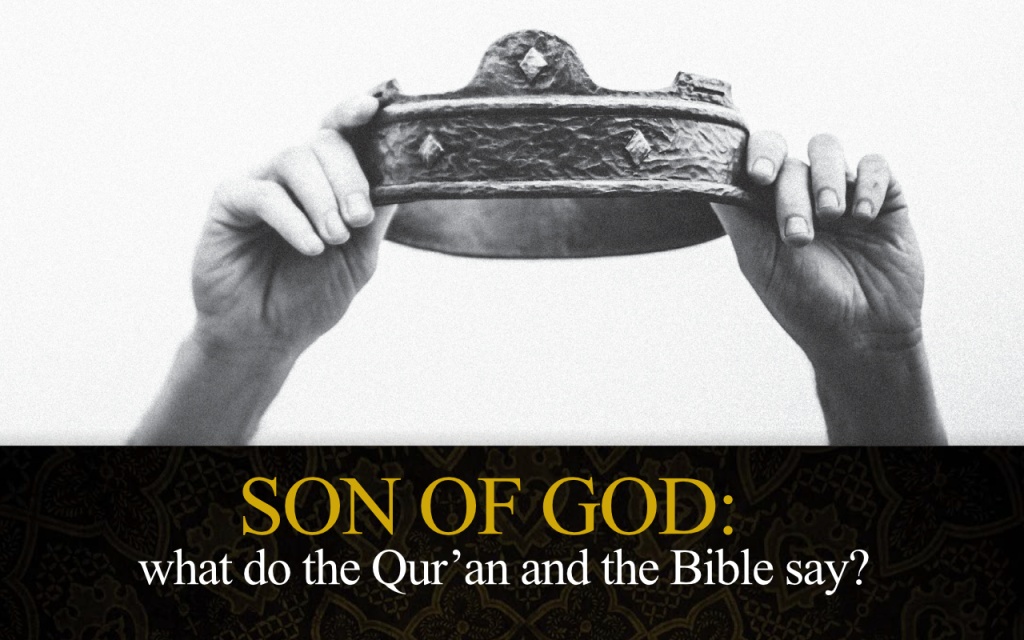Is Jesus the 'Son of God' Because He Performed Outstanding Miracles?
Son of God: what do the Qur'an and the Bible say?


Chapters
« Ch. 2 - Is Jesus The 'Son Of God' Because He Was Born of a Virgin?
Christian Perspective
In the Bible’s gospel accounts, Jesus’ disciples, like his opponents, were not convinced of his divinity simply because of a few miraculous ‘party tricks’.{18} If someone performs miracles it does not necessarily make them divine. Throughout the Bible, God often empowers flawed humans to perform amazing miracles. Moses, for example, strikes a rock and brings forth water.{19} The prophet Elisha even raises a child from the dead!{20} Miracles in themselves are not sufficient evidence that Jesus is divine.
But Jesus is different from other miracle-makers.
- None of the earlier prophets dared to claim they could forgive sins; this required an authority exclusive to God himself (Isaiah 43:25). During his ministry, Jesus claimed to forgive sins.{21}
- Earlier prophets didn’t strike fear into spiritual beings, but Jesus did.{22}
- Others never claimed authority over angels, or authority to judge on Judgment Day – but Jesus did.{23}
- Jesus claimed authority both to lay down his own mortal life, and to raise it up again by his own power.{24}
- Jesus calmed a storm and walked on water – things only God did in the Old Testament.{25}
- Jesus’ disciples claimed authority in the name of Jesus when performing miracles, and his disciples baptised new believers in the name of Jesus, ‘the Son’.{26}
- Most importantly, prophets before Jesus never, ever, received the worship of others. But Jesus did.{27}
Jesus was different because of the bold claims which accompanied his miracles.
How did devout Jews – the Pharisees, Sadducees and scribes – react? The Bible tells us they were furious with Jesus for making blasphemous claims about himself.{28} In fact, it was for this very reason that religious leaders demanded that Jesus be crucified.
But it’s worth remembering that Jesus’ closest disciples were all devout Jews, too. The disciples knew that none but God himself had the right to claim the authority Jesus did – but something about Jesus convinced them to accept his claims and follow him.
Islamic Perspective
As a Muslim, you will not have any problem with the idea that Jesus performed outstanding miracles. But you might emphasise that all Jesus’ impressive miracles were only those of a Messenger, done with Allah’s permission.
The Qur’an doesn’t go into much detail about the miracles of Jesus, but Quran 3.49 and Quran 5.110 speak in passing of several miracles performed by him which are first described in the Bible. In both the Qur’an and the Bible:
- Jesus heals the blind
- Jesus heals lepers
- Jesus raises the dead
Additionally, the Qur’an attributes other miracles to Jesus not mentioned in the Bible. In the Qur’an:
- Jesus speaks words of supernatural knowledge as a baby
- Jesus breathes life into clay birds
However, as we have considered, performing miracles does not justify calling Jesus the ‘Son of God’.
As well as describing Jesus as a miracle-working messenger, many Muslims regard Jesus himself as a miracle. After all, Jesus is born of a virgin, and is uniquely described as ‘a word from Allah’ (Kalimatullah) and the ‘spirit from Allah’ (ruhun mina’ Llah – see Quran 4.171). However we interpret these descriptions, we can see they set Jesus apart from other prophets.
In Sahih Bukhari, a ninth-century hadith trusted by most Muslims today, we are given another reason for the uniqueness of Jesus: he is the sole human being in history who has escaped the touch of Satan in his mother’s womb.{29} It is not surprising then that Jesus is considered a sign (ayah) – both for his mother, the virgin Mary, and ‘for (all) peoples’ (Quran 3.45; Quran 21.91). Muslims say Jesus is miraculous, but this does not make him the Son of God.
Comparison
Did Jesus perform miracles by his own authority, or with God’s permission?
The earliest accounts of Jesus’ life, including the New Testament gospels, do not simply present Jesus as performing miracles ‘with God’s permission,’ as implied by some later writings.{30} In the gospels, Jesus claims his own authority to forgive sins, to judge the world, to rule over heavenly beings, and even to impart life: that which God alone can do.{31} It is often assumed that Christians refer to Jesus as the ‘Son of God’ because he performed miracles, but the Bible does not support this claim. Even so, the nature of Jesus’ miracles can help point us to a better understanding of his identity – Jesus said so himself.{32}
Did Jesus speak as an infant?
According to the Qur’an, Jesus spoke from his cradle as a baby, and received a book from God (Quran 3.46). These claims are not found in the Bible, and they raise several important questions.
If Jesus received a book (the Injil), how was it received, and when? What happened to it? The Qur’an provides no further details, and since there’s no evidence outside the Qur’an, this claim is impossible to verify. If we maintain the Injil was simply a revelation (not written down) then we are faced with a claim which is impossible to prove, or disprove, with any confidence.
The earliest text outside the Qur’an which offers a similar ‘infancy narrative’ describing Jesus’ speech as a baby is Pseudo-Matthew33, which falsely names Jesus’ disciple Matthew as its author. This was written in the sixth century, drawing on folklore which began to emerge late in the second century. Christians reject Pseudo-Matthew because it was written several centuries later, and shows no reliable connection to the disciples of Jesus.{34}
Questions to consider
- Muslims often say Christians call Jesus the Son of God because he performed impressive miracles. If this is so, why don’t Christians and Jews worship other miracle-working prophets, like Moses and Elisha?
- What do you think about Jesus’ bold claims, such as his claim to forgive sins, or to preside over Judgment Day? Which other prophets claimed to resurrect themselves?
- Aside from his virgin birth, why is Jesus any different from other prophets of Islam?
Ch. 4 - Is Jesus the Son of God Because He Was Naturally 'Begotten' by God? »